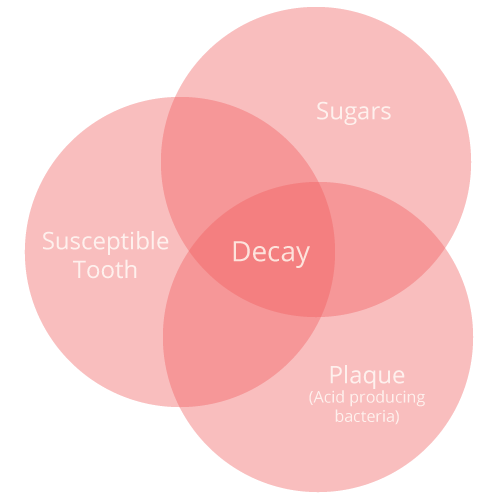 Tooth Decay
Tooth DecayTeeth are covered in a hard, outer coating called enamel. Every day, a thin film of bacteria called dental plaque builds up on your teeth. The bacteria in plaque produce acids that can begin to harm enamel. Over time, the acids can cause a hole in the enamel. This hole is called a cavity. Brushing and flossing your teeth can protect you from decay, but once a cavity happens, a dentist has to fix it.
You can protect your teeth from decay by using fluoride toothpaste. If you are at a higher risk for tooth decay (for example, if you have a dry mouth because of medicines you take), you might need more fluoride. Your dentist or dental hygienist may give you a fluoride treatment during an office visit. Or, the dentist may tell you to use a fluoride gel or mouth rinse at home.


Brush your teeth twice a day, in the morning and before bedtime, with fluoride toothpaste. Make sure to brush all sides of your teeth, as well as, your tongue.

Floss or use another between-the-tooth cleaner daily to remove plaque and bits of food from areas your toothbrush can't reach.

Eat a balanced diet for good general health and limit sugary snacks. Avoid tobacco, smokers are more likely to develop periodontal disease & tooth loss.

Visit your dentist regularly. Professional cleanings are the only way to remove tartar, which traps bacteria along the gum line.